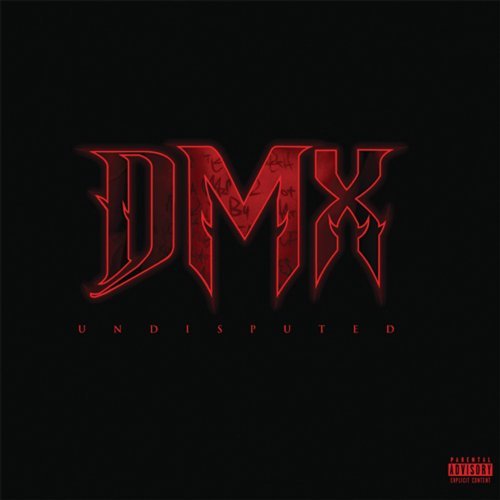

"It's Dark." became a classic and I enjoyed the way that the CD flowed well together with my favorite songs being "Get At Me Dog", "How's It Going Down", "Crime Story", "Let Me Fly" and "Ruff Ryders' Anthem". That song alone put DMX on the map for good. His solo debut CD, "It's Dark And Hell Is Hot" was released and the CD got a resurgence once the 3rd single, the Swizz Beats produced, "Ruff Ryders' Anthem" was released. Once I heard DMX's "Get At Me Dog", I knew that he had unlimited potential. Then out of nowhere I started hearing him on various tracks: Mase's "24 Hours To Live" with the LOX, The LOX's "Money, Power & Respect", and on LL Cool J's "4,3,2,1". It was a remix for Mic Geronimo's song called "Nothin' Move But The Money". I first heard DMX rap on a track with Mic Geronimo and Black Rob. The rapper is still as gritty as he was on his debut, only now he has a wealth of experience to share not only with his native Yonkers, but with the world at large. Ironically enough, DMX sounds a lot more joyful than usual on THE GREAT DEPRESSION. And songs like "Trina Moe" show off DMX's writing skills, often overlooked amid the fury of his performances. "Right Here," the first single, is a mid-tempo anthem for hip-hop heads to ride along with. Produced by various members of the Ruff Ryders crew, including Swizz Beatz and P.K., X's latest fits the Ruff Ryders formula of hardcore rap music with just enough crossover appeal to go pop. THE GREAT DEPRESSION is the fourth installment in the story of DMX's life.

But then he might not have the same impact on his fans. As it stands, 13 years later, "The Great Depression" is a very good album, certainly not depressing to these ears.Description : Personnel includes: DMX, Faith Evans, Stephanie Mills, Mashonda.Producers include: DMX, Damon "Grease" Blackman, Black Key, Kidd Kold, Chad Elliot.Recorded at The Hit Factory Criteria, Miami, Florida and Chaton Studios, Phoenix, Arizona."Who We Be" was nominated for the 2002 Grammy Award for Best Rap Solo Performance.Judging from his history of multi-platinum albums and successful film appearances, it would make more sense if DMX were happy rather than depressed. Again." And after this album, that was essentially it for Bloodline Records and to this day, I'm still not sure why it never got off the ground. Not surprisingly, aside from a few more guest appearances here and there, he took another break from hip hop and focused more on his acting career, not releasing another album until 2003's "Grand Champ," which will be covered next along with "Year of the Dog. Looking back, I'll also say that after "Who We Be" and "We Right Here" left radio and TV, X began to cool off a bit, which had more to do with the changing nature of hip hop and somewhat less to do with X himself. X stuck with what he knew and did best, coming through with a 4 star album (up from my previous rating of 3.5), moving 439,000 units in its first week, going on to achieve a 3X Platinum certification.

"The Great Depression" is nowhere near the level of X's first two albums, and it's about even with ".And Then There Was X", but this is not a bad album. I respect everyone's opinion, however, I disagreed then and I certainly disagree now. When talking about this album, I've often heard people say "yeah it did depress me listening to it," "yeah it was depressing," etc.
#3rd song on dmx albums tv#
And with "Who We Be" and "We Right Here" blazing the radio and TV at the time, all during my senior year of high school, my anticipation level was high. That got me excited, but was that the case? We'll definitely see during this revisit.

Also, the month before this album was set to drop, he was a guest on Rap City's "The Basement," and I still remember Big Tigger asking him, and I'm paraphrasing, "when it comes to the new album, which is it more comparable to?" X pointed to "It's Dark And Hell Is Hot" (his first three albums were on a nearby table).
#3rd song on dmx albums movie#
He also had a supporting role in "Romeo Must Die" and I feel it was the Steven Seagal "comeback" film "Exit Wounds" that started to get him noticed more in terms of movie roles. It all started with 1998's "Belly," which is a movie I NEVER liked to this day and you couldn't pay me to revisit it. While he didn't release an album in 2000, he still made guest appearances and notably beginning to get what some would call "that movie money." X's presence begin to grace the silver screen, becoming a respectable actor in the process. Going into his 4th album, DMX was still a hot commodity in hip hop, even with things changing around him.


 0 kommentar(er)
0 kommentar(er)
